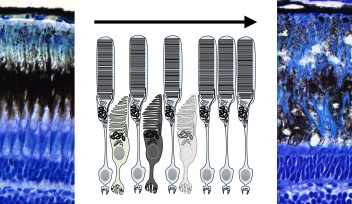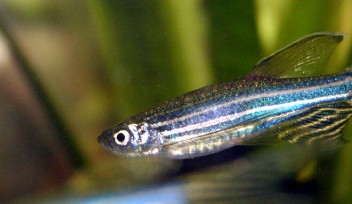OIST Professors Awarded HFSP Grant

Prof Greg Stephens, adjunct professor at the Okinawa Institute of Science and Technology Graduate University (OIST), and Prof Ichiro Masai of OIST have been awarded a Human Frontier Science Program (HFSP) grant together with Prof Joshua Shaevitz of Princeton University.
“From the stunning displays of large bird flocks to fish schools or even human crowds, collective behavior has long fascinated and engaged scientists across disciplines,” said Stephens, who led the grant proposal and is also a professor at Vrije Universiteit in Amsterdam. “Here, in the social swimming of zebrafish, we have an opportunity to connect these dynamics to their foundations in genetic and neural circuits.”
The team has won the prestigious and highly competitive HFSP Program Grant that will provide them with $350,000 per year to develop a new line of research through collaboration. While 871 letters of intent were originally received, only 87 were selected for full application, and Stephens, Masai and Shaevitz are among the 25 winners. Their research is titled ‘The physics of social behavior in the 3-dimensional shoaling of zebrafish, Danio rerio’.
“With this research we will combine biological expertise, with 3D motion tracking and theoretical ideas drawn from statistical physics,” Masai commented. “It is a well-suited collaboration that will enable us to describe and understand fish behaviour at an exceptional level.”
HFSP was proposed by then Prime Minister Yasuhiro Nakasone of Japan in 1987 and is implemented by the International Human Frontier Science Program Organization with its office in France. The HFSP grants, supported by governments and research councils, fund internationally collaborative, risk-taking research on biological systems.
Specialties
Research Units
For press enquiries:
Press Inquiry Form
















